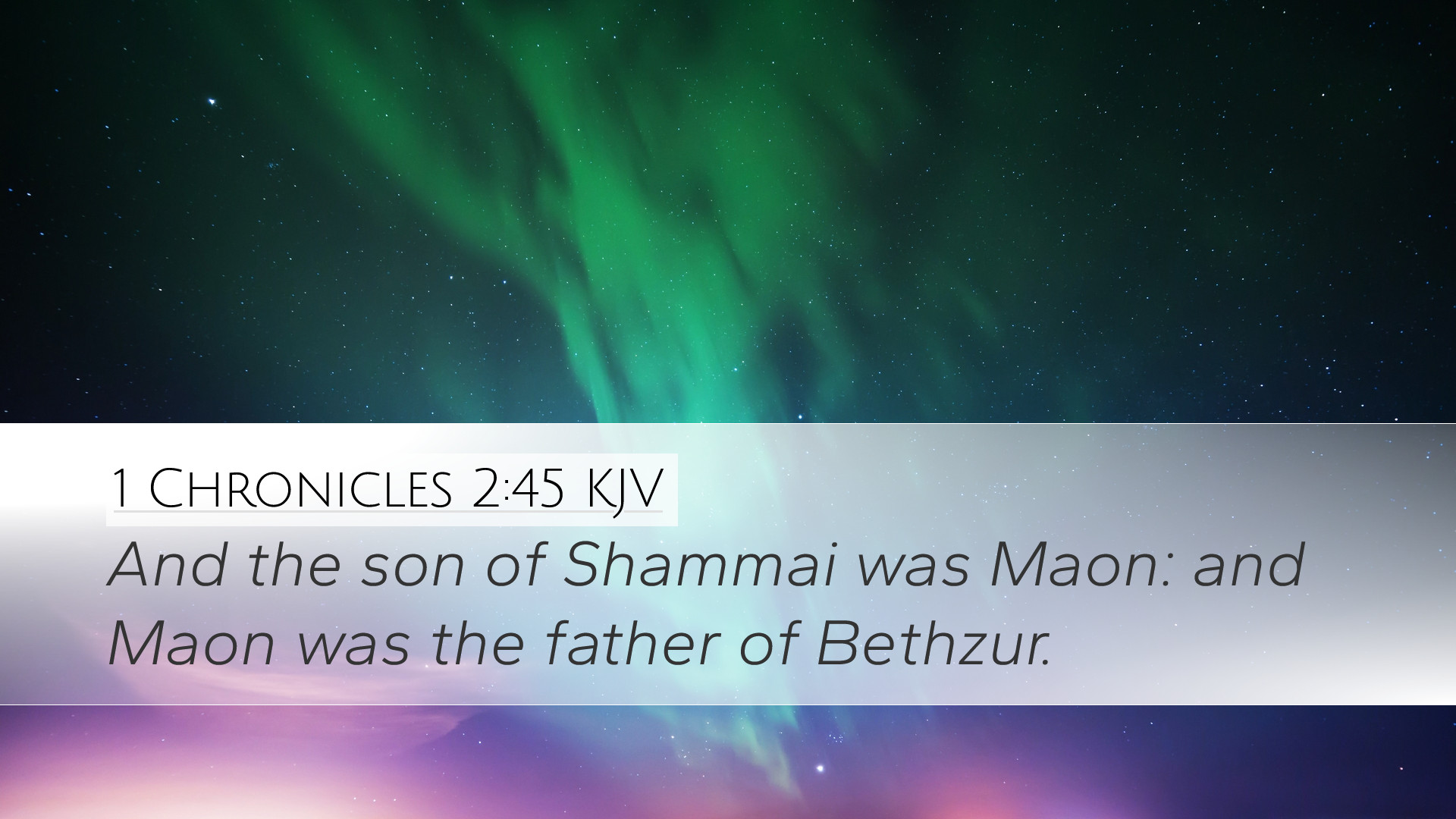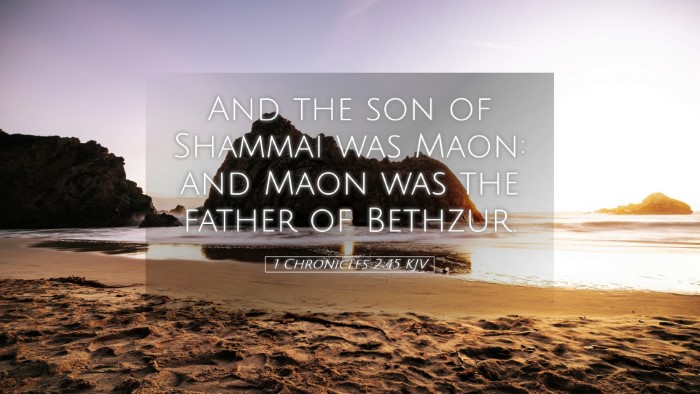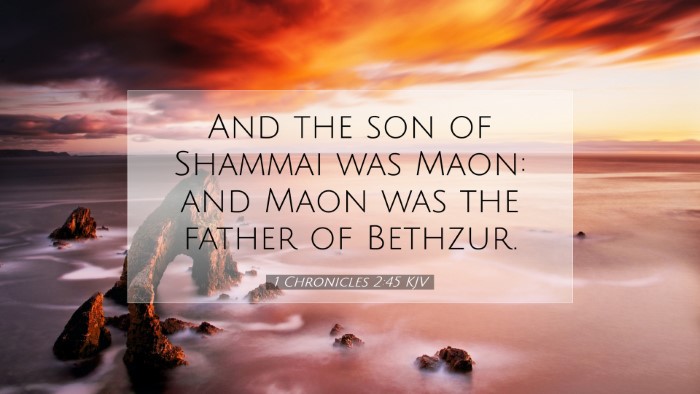Commentary on 1 Chronicles 2:45
Verse: 1 Chronicles 2:45 - "And the sons of Shobal were these: Alian and Manahath, and Ebal, Shephi, and Onam."
Introduction
The genealogical records found in 1 Chronicles serve not only to establish lineage but also to reveal the historical significance of various families among God's people. The verse in question presents the sons of Shobal, a descendant of Judah. This commentary draws on insights from public domain sources to provide a richer understanding of this text's implications for theology, history, and the study of the Bible.
Contextual Analysis
The genealogies in Chronicles trace the lineage of the tribe of Judah, linking its current members to their patriarchs. Matthew Henry emphasizes that understanding these genealogies helps demonstrate God's faithfulness across generations as He fulfills His covenant promises. The son Shobal, mentioned here, plays a crucial role in the genealogical line and the overall storyline of Israel’s history.
Albert Barnes notes that genealogical listings were essential to the Israelites. They established identity and belonging within the community of faith. In this perspective, Shobal's sons illustrate the continuation of legacy and the importance of familial ties, which were integral to the Israelite social fabric.
Examination of Characters
The sons of Shobal - Alian, Manahath, Ebal, Shephi, and Onam - carry names that, while not elaborated upon in this text, contribute to the understanding of Hebrew meanings and cultural significance. Adam Clarke states that names in the Bible often reflect character or destiny, and thus examining each name could yield insights into the characteristics valued by these families.
- Alian: Perhaps signifies a connection to lofty or noble attributes.
- Manahath: Could imply a place of rest or peace, hinting at the spiritual aspirations of the tribe.
- Ebal: Likely references the mountain associated with the blessings and curses in Deuteronomy, underscoring the theological dimensions of obedience and faithfulness.
- Shephi: The meaning is less certain; however, it may connect to ideas of salvation or refuge.
- Onam: This name may resonate with themes of restoration or new beginnings.
Theological Implications
Continuity of God’s Plan: The verse emphasizes God's continuous work through generations. Matthew Henry highlights that despite times of conflict and disloyalty among the Israelites, God's covenant community continues through specific lineages, which is crucial to understanding the unfolding narrative of salvation history.
Identity and Community: Albert Barnes elucidates how these genealogical records foster a sense of identity. In the New Testament, the importance of belonging to a spiritual lineage is echoed, particularly in Paul's epistles where believers are called children of God, legitimizing a new lineage established through Christ.
Historical Context
The historical backdrop of Shobal and his descendants sheds light on the socio-political environment of ancient Judah. Adam Clarke explores that Shobal may have been significant as a leader or influential figure in the region. The listing of his sons indicates a recognition of his legacy, tying it back to vital narratives of the tribal leaders within Israel.
The existence of these familial lines reflects Israel’s history and the implications surrounding land and heritage that were vital for ancient Israelites. As lands were divided among tribes, understanding these lineages became critical for legal and social structures.
Conclusion
In conclusion, 1 Chronicles 2:45 serves as more than a mere listing of names; it evokes deep theological, historical, and communal reflections pertinent for pastors, students, and theologians today. By closely examining the significance of Shobal and his sons within the framework of God’s covenant and the continuum of faith, we recognize the enduring relevance of these texts in both ancient and modern contexts.
As believers, we are reminded of the importance of preserving our spiritual heritage while participating in the established lineage of faith, much like the ancestors documented in the Chronicles. The implications of this verse encourage an appreciation for God's faithfulness in history and an ever-deepening understanding of our identity in Christ.


